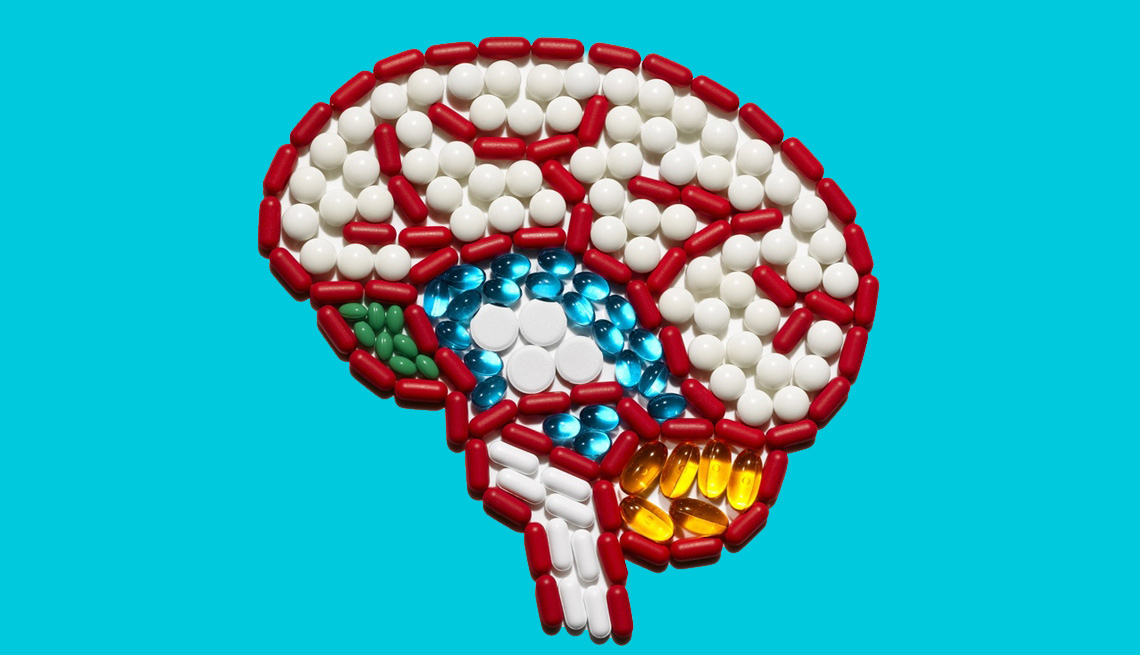
Multivitamins may improve cognition
- Select a language for the TTS:
- UK English Female
- UK English Male
- US English Female
- US English Male
- Australian Female
- Australian Male
- Language selected: (auto detect) - EN
Play all audios:

Adding a multivitamin to your daily routine could have some brain perks, accumulating evidence suggests. In a study, published Jan. 18 in _The American Journal of Clinical Nutrition_,
researchers tested the effects of a daily multivitamin on cognitive changes in 573 participants 60 and older. Compared with a placebo, a daily multivitamin had beneficial effects on
thinking, reasoning and memory, they found. This study is the third in a series of randomized clinical trials — the gold standard of studies — under the larger COSMOS (Cocoa Supplement
and Multivitamin Outcomes Study) research initiative, which is investigating the effects of multivitamins and cocoa flavonols on various age-related conditions, including brain health. The
results of all three studies have been similar, and taken together, the findings show that a multivitamin slowed declines in reasoning and memory by about two years, compared with a placebo.
“Cognitive decline is among the top health concerns for most older adults,” Chirag Vyas, lead author on the latest study in the trio of trials and an instructor in the department of
psychiatry at Massachusetts General Hospital, said in a news release. There’s potential for a daily multivitamin to be “an appealing and accessible approach to slow cognitive aging,” he
said. In the first study, a team of researchers from the Wake Forest University School of Medicine, in collaboration with Brigham and Women’s Hospital in Boston, tested whether daily
administration of cocoa extract versus a placebo and a multivitamin-mineral versus a placebo could improve cognition in more than 2,200 adults 65 and older over the course of three years.
The cocoa extract — rich in compounds called flavonols that have been linked to better brain health — had no impact on cognition, according to the study, published in 2022 in the journal
_Alzheimer’s & Dementia_. The adults who were randomly assigned to take a daily multivitamin saw a statistically significant improvement — one that translated to a 60 percent slowing of
cognitive decline (or a nearly two-year delay in brain aging, meaning they tested as well as someone two years younger would be expected to perform on the tests). In the second study,
researchers randomized more than 3,500 participants 60 and older into two groups: a placebo group and a multivitamin group. They found that those in the multivitamin group performed better
on memory tests compared with the placebo group and delayed memory changes by the equivalent of slightly more than three years. The results were published in 2023 in _The American Journal
of Clinical Nutrition_. “The finding that a daily multivitamin improved memory and slowed cognitive aging in three separate placebo-controlled studies in COSMOS is exciting and further
supports the promise of multivitamins as a safe, accessible and affordable approach to protecting cognitive health in older adults,” JoAnn Manson, M.D., COSMOS colead and chief of the
division of preventive medicine at Brigham and Women’s Hospital, said in a news release. NOT A DEMENTIA TREATMENT Laura Baker, a professor of gerontology and geriatric medicine at the Wake
Forest University School of Medicine, and the lead author on the first of the three studies, cautions that the research does not suggest a multivitamin can prevent or cure dementia, a
cluster of conditions that affect more than 55 million people worldwide.
